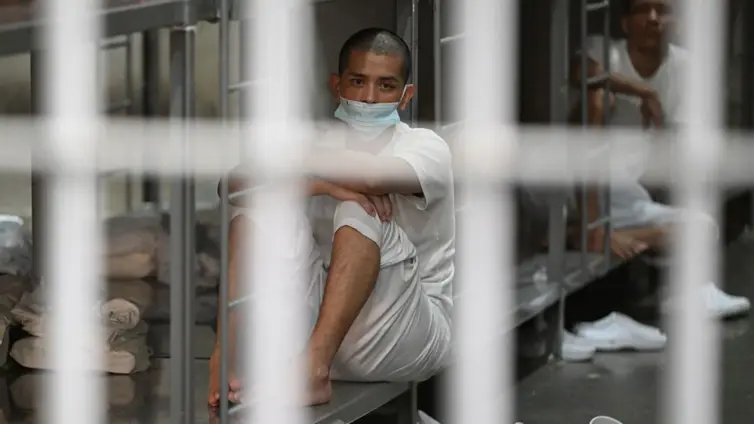A recent call from Nana Agyei Baffour Awuah, a Member of Parliament in Ghana, has put the spotlight on the need for enhanced Supreme Court diligence. Awuah’s remarks underscore the importance of forward-thinking constitutional interpretations within the nation’s highest court. He emphasizes that the Supreme Court’s role is pivotal in shaping Ghana’s legal framework and, consequently, its democratic development. Central to his concerns is Article 146 of the 1992 Constitution, a section that he believes requires a more structured and transparent approach.
Baffour Awuah’s emphasis lies on the judiciary’s essential role in progressively interpreting and strengthening the constitution. He believes that the court should not be static but rather evolve with the changing needs of society. “As a people, we must appreciate that nothing is perfect from the beginning,” he stated, adding, “a progressive society and a progressive Supreme Court diligence go hand in hand.” These forward-thinking interpretations, he argues, are necessary to guide legal and democratic development effectively. He advocates for a judiciary that actively contributes to the strengthening of Ghana’s democratic institutions.
However, Awuah specifically points to Article 146 of the 1992 Constitution as an area where, in his view, the Supreme Court has fallen short. “I believe that on the issue of Article 146, it is the Supreme Court of the Republic of Ghana that has disappointed us,” he asserted. This critique is not new; even former Chief Justice Madam Sophia Akuffo acknowledged deficiencies in the application and interpretation of this particular constitutional provision. The core of the issue seems to be around the processes and procedures involved in handling cases related to this article.
To illustrate his concerns, Baffour Awuah referenced several key cases that have come before the Supreme Court. These cases highlight what he perceives as inconsistencies and a lack of depth in the Court’s approach to constitutional interpretation. One such case is Attorney-General v. Ghana Bar Association. This case, along with Agyei Twum and the Thierry case, serves as a backdrop for Awuah’s critique.
“In the Ghana Bar Association case, a certain perspective was taken. Then in Agyei Twum, the Court went a step further. But in the Thierry case…” Awuah noted, implying a lack of a consistent guiding principle. The Thierry case, in particular, brings into focus the use of *obiter dictum*, a judicial comment made during a judgment that is not essential to the decision itself but may offer guidance.
Awuah emphasizes the importance of distinguishing between *ratio decidendi*—the legal principle upon which the court’s decision is based—and *obiter dictum*. He suggests that the Court’s rulings should be grounded in thorough analysis and consistently applied legal principles. The lack of consistency and depth, in his view, undermines the credibility and effectiveness of the judiciary in guiding the nation’s legal trajectory and ensuring Supreme Court diligence.
Looking ahead, Baffour Awuah urges the Supreme Court to consider the future implications of their rulings. He believes that the court’s decisions should not only address the immediate case at hand but also provide a clear and consistent framework for future legal interpretations. “When cases come to the Supreme Court for determination, the Court must, with all due respect, do a thorough job,” he urged. This thoroughness, he argues, is essential for building stronger legal interpretations that can guide the country forward and reinforce Supreme Court diligence.
Furthermore, Awuah calls on politicians to adopt a more nationalistic and holistic approach to governance. He advocates for actions that transcend partisan interests and focus on the greater good of the nation. “Let us, as politicians, begin to look at issues from a national perspective…think about the national good,” he advised. This broader perspective, he believes, is crucial for creating policies and laws that truly benefit all Ghanaians.
In addition to his concerns about constitutional interpretation, Baffour Awuah also addressed the procedures related to Article 146. He called for a structured and transparent approach to matters concerning the impeachment or removal of judges. “It is inappropriate for committees to create procedures on an ad hoc basis,” he stated, emphasizing the need for proper regulations that are established and known in advance. This is essential for ensuring fairness and impartiality in such sensitive proceedings, furthering Supreme Court diligence.
The need for fairness in legal proceedings is paramount. Transparent and structured processes are essential for upholding justice and maintaining public trust in the judiciary. By establishing clear procedures and adhering to them consistently, the Supreme Court can demonstrate its commitment to upholding the rule of law and ensuring that all individuals are treated fairly under the legal system.
In summary, Nana Agyei Baffour Awuah’s remarks highlight the critical need for enhanced Supreme Court diligence and forward-thinking interpretations within Ghana’s legal system. He emphasizes the significance of Article 146 of the 1992 Constitution and calls for improved transparency and structure in its application. Ultimately, Awuah envisions a stronger legal framework in Ghana, achieved through diligent and comprehensive judicial practices, ensuring Supreme Court diligence in all future cases.
Image Source: MYJOYONLINE






















